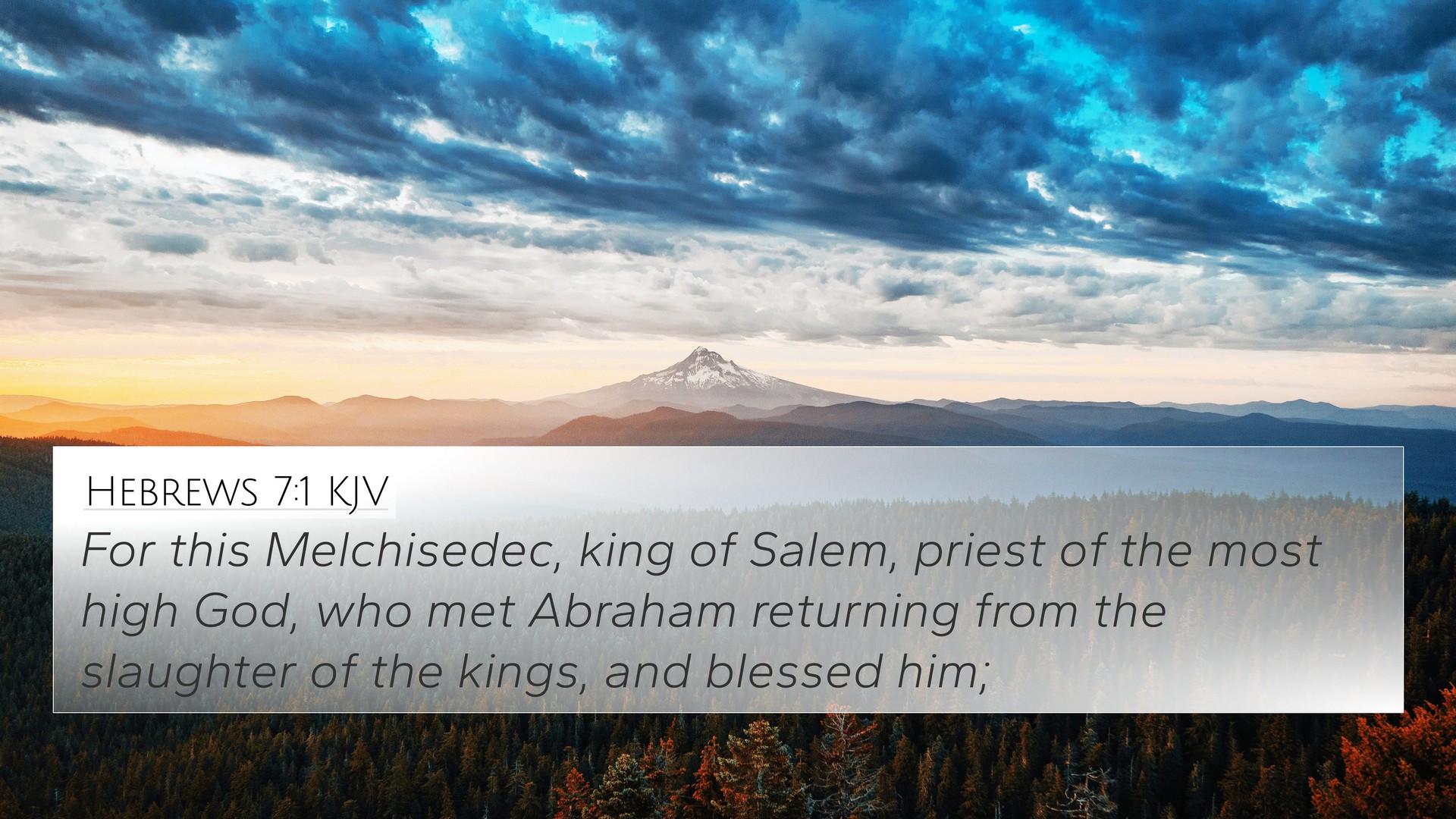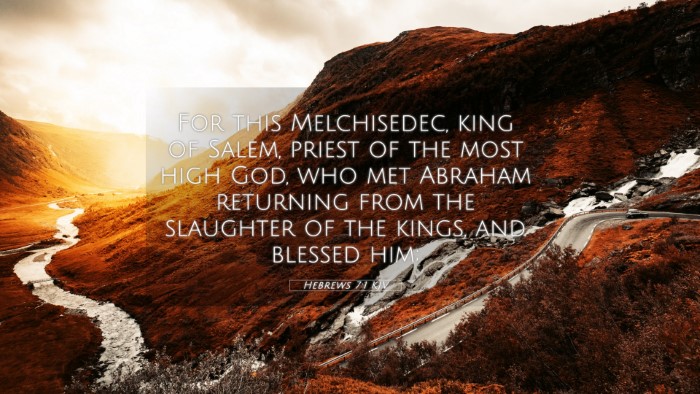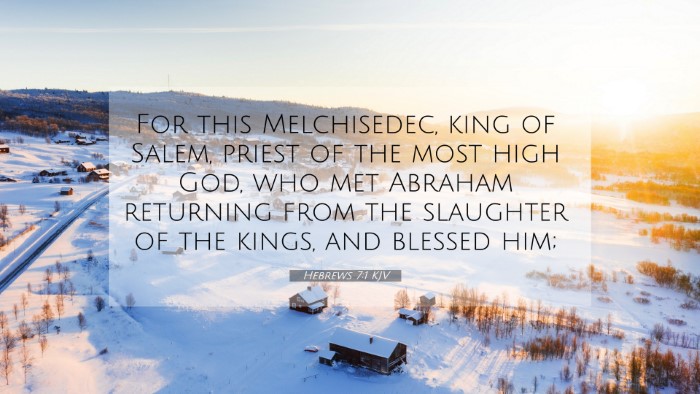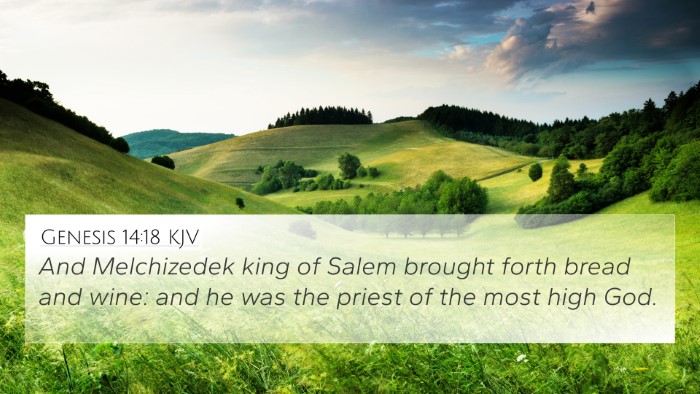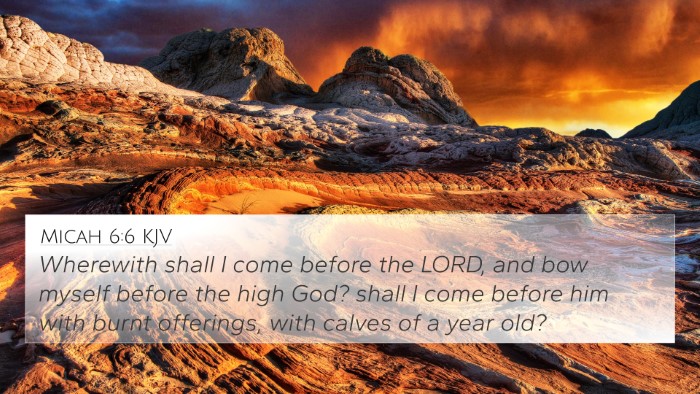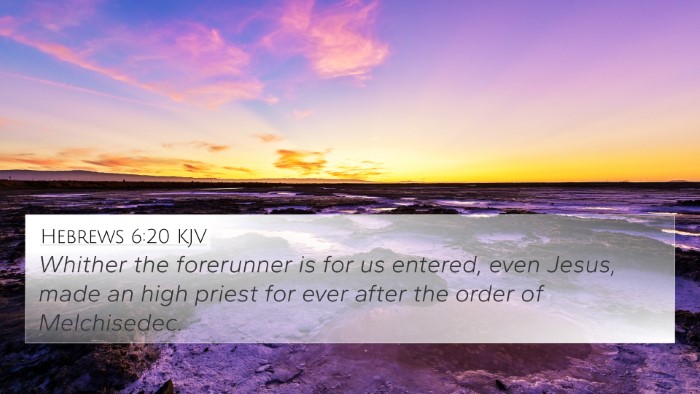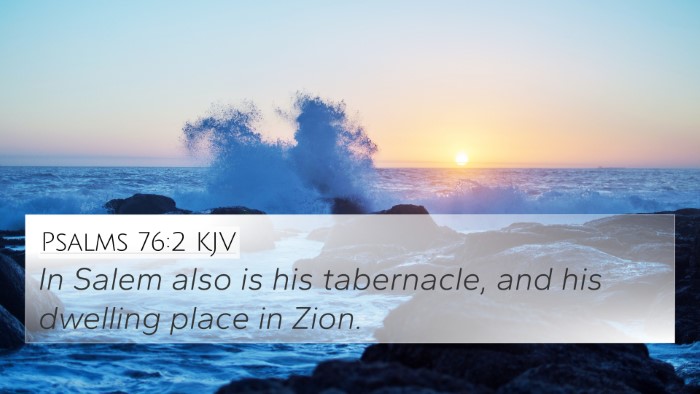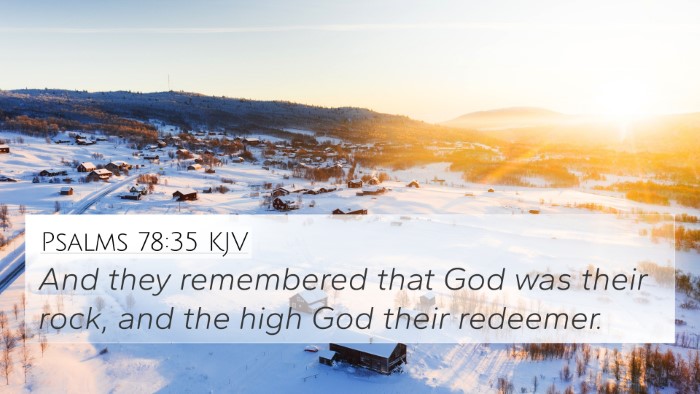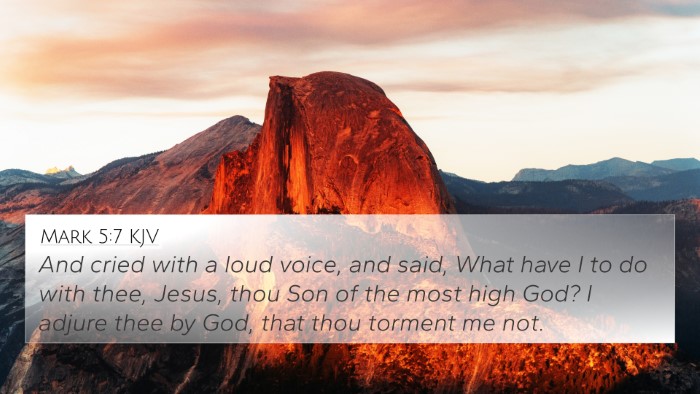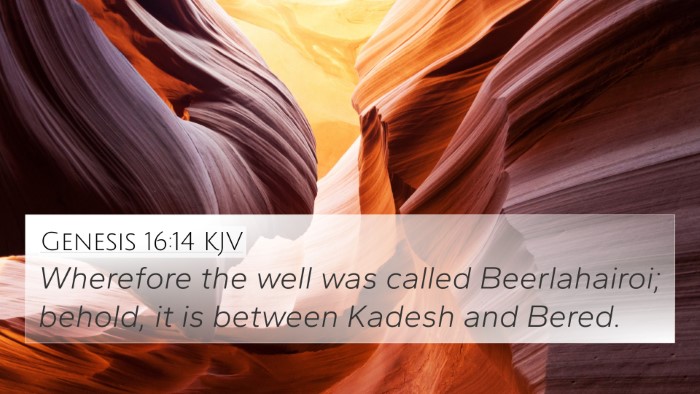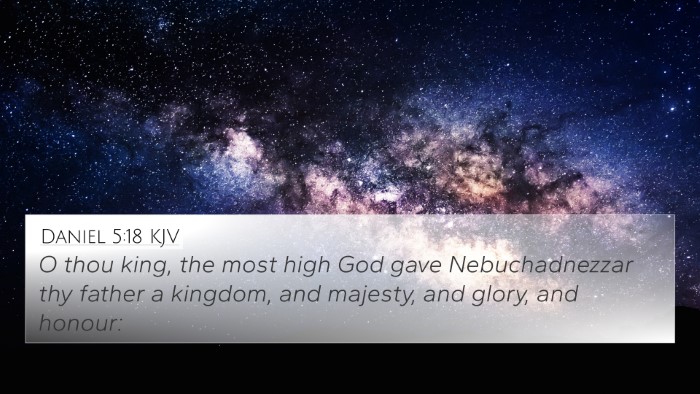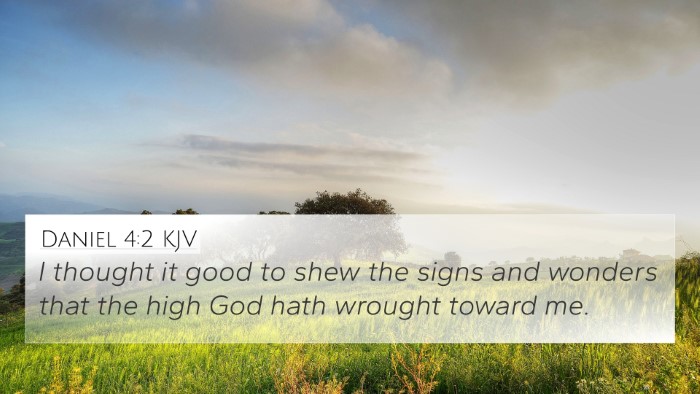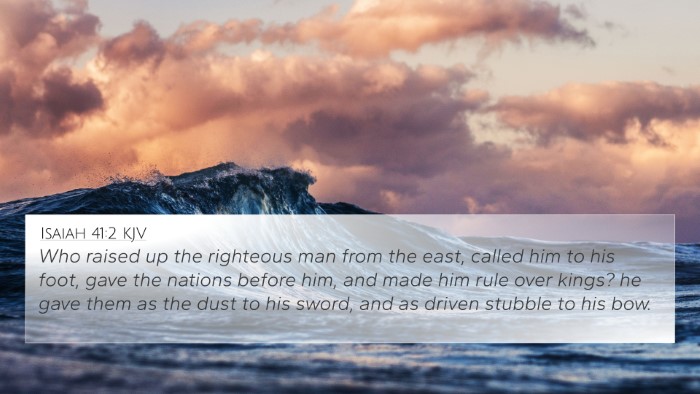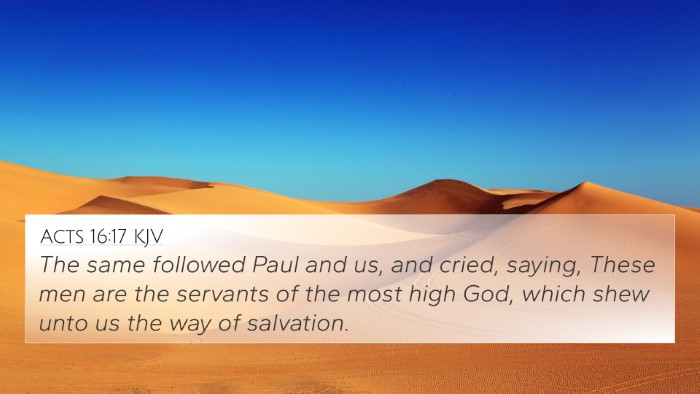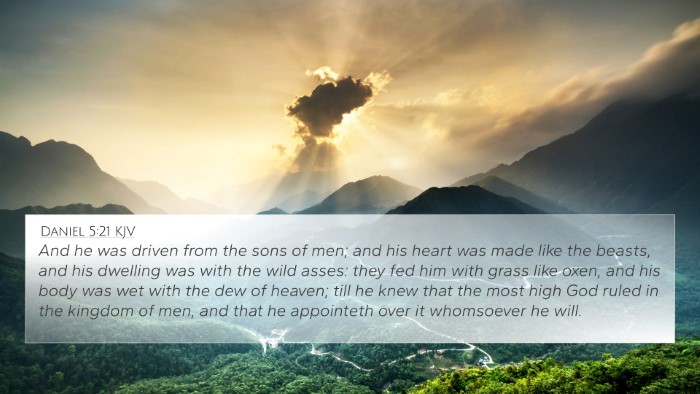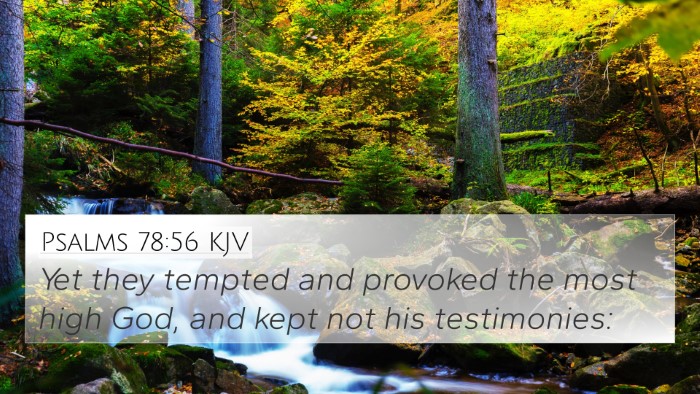Understanding Hebrews 7:1
Hebrews 7:1 states: "For this Melchisedec, king of Salem, priest of the most high God, who met Abraham returning from the slaughter of the kings, and blessed him." This verse introduces a critical figure in biblical theology, Melchizedek, who serves as a type and foreshadowing of Christ's priesthood.
Significance of Melchizedek
In the context of Hebrews 7:1, Melchizedek is significant for several reasons:
- Royal Priesthood: Melchizedek is described as both a king and a priest, which is a rare combination in the Bible.
- Typology of Christ: His dual role serves as a precursor to Jesus Christ, who is our eternal high priest.
- Historical Context: The meeting between Melchizedek and Abraham establishes the legitimacy of his priesthood as it predates the Levitical priesthood.
Biblical Cross-References
This verse is intricately connected to several other passages in the Bible that enhance our understanding of Melchizedek and his significance:
- Genesis 14:18-20: The original account of Melchizedek's encounter with Abraham.
- Psalms 110:4: "The Lord has sworn and will not change his mind: 'You are a priest forever, in the order of Melchizedek.'" This verse directly connects to the priesthood of Christ.
- Hebrews 5:6: Discusses Christ being a high priest in the order of Melchizedek.
- Hebrews 6:20: Points to Jesus entering the inner sanctuary as a forerunner on our behalf, paralleling Melchizedek's unique priesthood.
- Romans 5:10: Illustrates the significance of being reconciled to God through Christ’s priestly role.
- 1 Peter 2:9: Highlights the priesthood of believers, linking to Melchizedek's royal priesthood.
- Revelation 1:6: Declares believers made kings and priests through the blood of Christ, connecting back to the identity established by Melchizedek.
Thematic Connections
In examining Hebrews 7:1, we find several thematic connections throughout Scripture:
- Intercessory Roles: Both Melchizedek and Christ serve in a mediating capacity between God and humanity.
- Covenantal Significance: The Abrahamic covenant is intertwined with Melchizedek's priesthood, establishing a foundation for God’s promises.
- Eternal Priesthood: The eternal nature of Melchizedek's priesthood serves as a contrast with the temporal Levitical priests, paralleling Christ’s unending high priesthood.
Comparative Analysis
When conducting a comparative Bible verse analysis, we can draw several insights:
- Study the qualities of Melchizedek alongside the Levitical priests to discern the differences in their roles and effectiveness.
- Examine how the New Testament writers adapt the figure of Melchizedek to articulate Christ's superior ministry.
- Look at the parallels between Melchizedek’s blessings over Abraham and Christ's blessings to believers today.
Using Bible Cross-References
For those studying Hebrews 7:1, utilizing tools for Bible cross-referencing such as a Bible concordance or a cross-reference Bible study guide can greatly enhance your understanding. Here are some methods and resources:
- Bible Concordance: A valuable tool to find related verses and explore themes.
- Cross-reference Systems: Various Bibles include cross-referencing notations that link relevant scriptures.
- Online Biblical Resources: Websites offer comprehensive Bible cross-reference materials, facilitating deeper studying.
Conclusion
In summary, Hebrews 7:1 is a pivotal verse that introduces Melchizedek, connecting to various themes, typological insights, and deeper scriptural dialogues. Understanding Melchizedek assists in grasping the significance of Christ's eternal priesthood and the overarching narrative of redemption found within the Scriptures.
